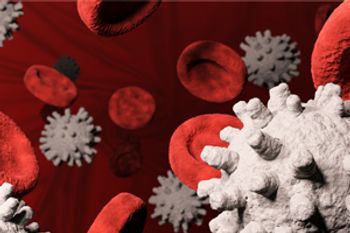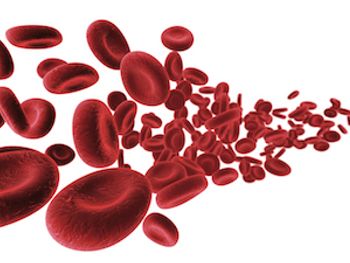
The purpose of evidence-based guidelines is to reduce the level of variation, improve outcomes, and reduce costs, said Derek Raghavan, MD, PhD, FACP, FRACP, president, Carolinas HealthCare System's Levine Cancer Institute.

The purpose of evidence-based guidelines is to reduce the level of variation, improve outcomes, and reduce costs, said Derek Raghavan, MD, PhD, FACP, FRACP, president, Carolinas HealthCare System's Levine Cancer Institute.

Chimeric antigen receptor (CAR) T-cell treatments are still new enough that there are still unknown regarding long-term side effects, which is something patients need to understand before they undergo treatment, said Shannon L. Maude, MD, PhD, of The Children's Hospital of Philadelphia.

Physician involvement, patient input, and accuracy are the most important aspects of successfully implementing guidelines, said Derek Raghavan, MD, PhD, FACP, FRACP, president, Carolinas HealthCare System's Levine Cancer Institute.

Thomas LeBlanc, MD, of the Duke Cancer Institute, addresses the importance of adding a palliative care specialist to the cancer care team.

Since patients who receive CAR T-cell therapy experience unique adverse events, there will need to be education for providers who care for these patients, explained Stephen Schuster, MD, of the Perelman School of Medicine.

While clinicians can have a bad reaction to the idea of “cookbook medicine,” it can really result in patients getting the best treatment, said Derek Raghavan, MD, PhD, FACP, FRACP, president, Carolinas HealthCare System's Levine Cancer Institute.

While there has been progress with using chimeric antigen receptor (CAR) T cells to treat multiple myeloma, these treatments aren’t ready for prime time, said Nina Shah, MD, associate professor, University of California, San Francisco, School of Medicine.

Thomas LeBlanc, MD, of the Duke Cancer Institute, discusses how palliative care has evolved over the past decade for patients with blood cancers.

Thomas LeBlanc, MD, Duke Cancer Institute, addresses the ways palliative care and hospice can improve end-of-life outcomes for patients with blood cancers.

Thomas LeBlanc, MD, Duke Cancer Institute, discusses the trends of hospice care services used among patients with blood cancer compared with patients with solid tumors.

The challenges that adolescents and young adults face before and after treatment are all unique to an individual patient, according to Julie Wolfson, MD, of the University of Alabama at Birmingham School of Medicine.

Julie A. Wolfson, MD, of the University of Alabama at Birmingham School of Medicine, discusses what clinicians need to be conscious about regarding the outcomes disparities between adolescents and young adults with acute lymphoblastic leukemia (ALL), and children with ALL.

The last 5 years have seen a host of new drugs approved for multiple myeloma, improving survival times for patients, explained Nina Shah, MD, associate professor, University of California, San Francisco, School of Medicine.

Deciding to administer CAR T-cell therapies is an institutional commitment that requires educating all clinicians who will be involved and partnerships with other organizations, said Stephen Schuster, MD, of the Perelman School of Medicine.

Most primary side effects of CAR T therapies occur early on after treatment and resolve quickly, but there are some that require long-term monitoring, explained Shannon L. Maude, MD, PhD, of The Children's Hospital of Philadelphia.

Physicians caring for patients with severe congenital neutropenia should be ready to detect issues with multiple systems in the body, explained Seth Corey, MD, of the Virginia Commonwealth University and the Massey Cancer Center & Children's Hospital of Richmond, during a session at the 59th American Society of Hematology Annual Meeting and Exposition in Atlanta, Georgia.

Electronic health records can be used to measure and record how guidelines are being implemented and followed, but more government intervention is needed to regulate electronic health records and set standards, Derek Raghavan, MD, PhD, FACP, FRACP, president, Carolinas HealthCare System's Levine Cancer Institute.

The FDA was busy in 2017, with a number of notable approvals, including the first chimeric antigen receptor T-cell treatment. In a session at the 59th American Society of Hematology Annual Meeting and Exposition in Atlanta, Georgia, employees from the FDA presented data on 5 new drug approvals in leukemia and lymphoma in 2017.

Opioids are commonly precribed for the treatment of both acute and chronic pain.

In a session at the 59th American Society of Hematology Annual Meeting and Exposition in Atlanta, Georgia, Brian Curtis, PhD, of the BloodCenter of Wisconsin Blood Research Institute, highlighted drugs other than chemotherapy that may cause neutropenia in patients.

Stephen Schuster, MD, of the Perelman School of Medicine, provides a summary of results seen with CAR T treatments in leukemia, lymphoma, and myeloma.

Including the modified brentuximab antibody in the treatment regimen improved modified progression-free survival by 5%, although the rates of neutropenia and infections were higher in patients administered the brentuximab-containing regimen.

Adolescents and young adults with acute lymphoblastic leukemia (ALL) tend to have worse outcomes than children with ALL, and new research published at the 59th American Society of Hematology Annual Meeting delved into the reasons why, explained Julie A. Wolfson, MD, of the University of Alabama at Birmingham School of Medicine.

Right now is a critical time for the healthcare industry to evaluate how patients are financially burdened by novel treatments that can provide tremendous outcomes, said Joshua R. Richter, MD, of the John Theurer Cancer Center.

A much-anticipated session on the second day of the 59th Annual Meeting and Exposition of the American Society of Hematology provided long-term updates on trials evaluating 2 chimeric antigen receptor-T (CAR T) treatments: tisagenlecleucel or CTL019 (Kymriah) for the treatment of adult relapsed/refractory diffuse large B-cell lymphoma (DLBCL) and axicabtagene ciloleucel (Yescarta) evaluated in patients with refractory aggressive non-Hodgkin lymphoma.

Patients with blood cancers tend to use hospice care services less frequently overall than patients with solid tumors. While there has been an increase in hospice care use in patients with blood cancers, there has been a failure to increase hospice use meaningfully, according to Thomas LeBlanc, MD, of the Duke Cancer Institute.

Providing outpatient hematopoietic stem cell transplant (HSCT) when patients are eligible is a good way to reduce costs, without impacting outcomes, explained Nina Shah, MD, associate professor, University of California, San Francisco, School of Medicine.

Clonal hematopoiesis and selection pressures associated with aging can together lead to the development of neoplasms. Two hematologists presented US and European updates on the potential to develop a predictive model, and an appropriate intervention, in these individuals.

Two abstracts at the 59th Annual Meeting of the American Society of Hematology in Atlanta, Georgia found that CTL019 shows promising potential in providing significant benefit and cost effectiveness for pediatric and young adult patients with B-cell acute lymphoblastic leukemia in both the United States and the United Kingdom.

Is transfusion dependence a barrier to hospice utilization among older patients with leukemia who are enrolled in Medicare?

259 Prospect Plains Rd, Bldg H
Cranbury, NJ 08512
© 2025 MJH Life Sciences®
All rights reserved.
